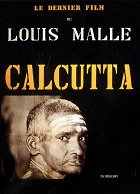Réalisation:
Louis MalleScénario:
Louis MallePhotographie:
Étienne BeckerActeurs·trices:
Louis MalleVOD (1)
Résumés(1)
De trois semaines d'immersion totale dans Calcutta Louis Malle nous donne pêle-mêle divers aperçus sur la ville. Les baigneurs du Gange, les rues surpeuplées, un hospice tenu par des religieuses, le golf club où viennent se distraire de riches hindous anglicisés, Calcutta poursuit le dessin d'Inde Fantôme et nous parle mystérieusement de l'Inde. (Gaumont)
(plus)Critiques (1)
A testament to Malle’s interest in India, where at the end of the 1960s the French director shot many hours of footage (from which he pieced together the seven-part documentary series L'Inde fantôme in addition to Calcutta). His documentary method is seemingly neutral. Malle documents life on the streets of Calcutta with minimal accompanying commentary, which explains in a quite journalistic style what we are witnessing rather than interpreting the given situations. Of course, he deliberately chooses scenes that will shock Western Europeans the most – poverty, filth, hunger. A brief diversion into higher society creates a drastic contrast to the prevailing material and laconically points out the caste divisions of Indian society. Malle does not assume the compassionate position of a white intellectual, as he does not openly criticise and does not look for causes, which is reminiscent of Rouch’s approach to filming Africa and we could chastise him (as we could Rouch) for observing the inhabitants of the third world as if they were fascinating insects. Of course, the key moments are those that are unedited, when the Indians look into the camera, whose presence clearly makes them uncomfortable. The foreigner’s eye obviously distracts them from their daily activities and, together with Malle, we thus become aware of our own impropriety as people who, thanks to similar documentaries, can at most observe such a diametrically different culture, but never understand it, let alone criticise it. 80%
()
Photos (9)
Photo © NEF

